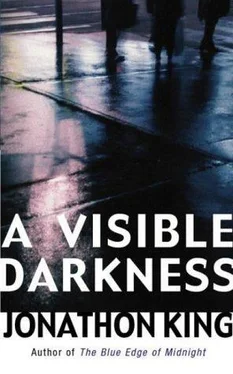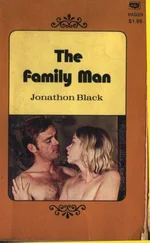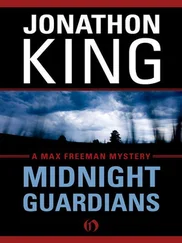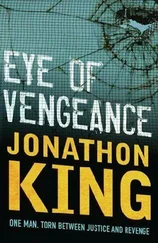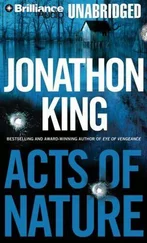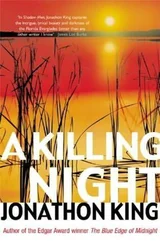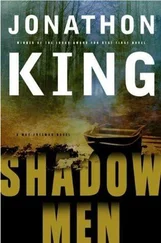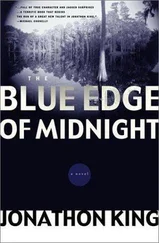Jonathon King - A Visible Darkness
Здесь есть возможность читать онлайн «Jonathon King - A Visible Darkness» весь текст электронной книги совершенно бесплатно (целиком полную версию без сокращений). В некоторых случаях можно слушать аудио, скачать через торрент в формате fb2 и присутствует краткое содержание. Жанр: Триллер, на английском языке. Описание произведения, (предисловие) а так же отзывы посетителей доступны на портале библиотеки ЛибКат.
- Название:A Visible Darkness
- Автор:
- Жанр:
- Год:неизвестен
- ISBN:нет данных
- Рейтинг книги:3 / 5. Голосов: 1
-
Избранное:Добавить в избранное
- Отзывы:
-
Ваша оценка:
- 60
- 1
- 2
- 3
- 4
- 5
A Visible Darkness: краткое содержание, описание и аннотация
Предлагаем к чтению аннотацию, описание, краткое содержание или предисловие (зависит от того, что написал сам автор книги «A Visible Darkness»). Если вы не нашли необходимую информацию о книге — напишите в комментариях, мы постараемся отыскать её.
A Visible Darkness — читать онлайн бесплатно полную книгу (весь текст) целиком
Ниже представлен текст книги, разбитый по страницам. Система сохранения места последней прочитанной страницы, позволяет с удобством читать онлайн бесплатно книгу «A Visible Darkness», без необходимости каждый раз заново искать на чём Вы остановились. Поставьте закладку, и сможете в любой момент перейти на страницу, на которой закончили чтение.
Интервал:
Закладка:
"I don't see a whole lot of enthusiasm," I said. Billy hesitated.
"You know I don't ask you into this easily, Max. I thought I could get to it, track it down from the outside."
He listened to my silence.
"My feeling is the answers are in the street, and I admit I won't go there anymore, Max. It doesn't work for me."
My friend had made his escape. I wondered if he knew something I didn't, if he knew I couldn't make mine. Maybe he was right.
I told him I wanted to start in the neighborhood, with the daughter who had first called him in.
"Logical," he said, his voice losing its tension. "McCane has already been over there and wasn't too subtle."
I could imagine the stone-cold looks and the long-ago images of "the man" that would run through most of the minds in such a place when McCane came banging on the door.
"No doubt," I said. "I'm sure that loosened things up nicely for me."
"I'll talk to Ms. Jackson's daughter about you."
When I let the statement sit quiet for a few seconds, he added, "Thanks, Max."
"You are my attorney," I said. "And by the way, as such, what the hell is going on with this petition to kick me out of my place?"
I could hear him on the other end, could picture him taking a long draw on one of those fruit and vitamin drinks he had every morning. "How hard do you want me to fight it?" he asked.
Billy thought my isolation on the river was therapeutic when I first came south. The ghost with a dead boy's face, my bullet in his chest, was lodged hard in my head. The river was a cloak against it. Every night I had tried to grind the vision out with late night paddlings up and down the river that were almost manic with effort. But the sweat and pounding of blood in my ears had not saved me. Obviously my friend thought it was time for me to come out and rejoin the world. I wasn't sure I wanted to.
"Fight it," I finally said. "I still need some time to work on my casting technique."
6
By 10:00 A.M. I was back in my truck, sitting at a four-way stop in an old, unincorporated section of Broward County, Ms. Jackson's address in my hand. The streets were numbered in progression to the west. The neighborhood was several blocks north of Sistrunk Boulevard, which was considered the main commercial strip in the community. It was here that the black merchants built thriving businesses at a time when separation was still a way of life in the Old South. The street had eventually been named after Dr. James Franklin Sistrunk, one of the first African-American doctors in the county, who practiced when blacks were still banned from being treated in white hospitals on the east side.
I eased the truck onto Northwest Seventeenth Avenue and started looking for numbers. The asphalt street was a dull gray in the high morning sun. There were no sidewalks, and the graveled swale that ran along both sides was a dusty white in the glare. Small, single-story block houses sat back off the roadway. The front lawns were dry and bare. There was a distinct lack of trees on the front lots, but I could see a line of spreading ficus and an occasional poinciana swelling up above the shingled roofs in the back.
There was one such tree on the corner of the next block, and three men were gathered in its shade.
The two standing were young, in their late teens, and their heads turned my way as I rolled up and then snapped the opposite way as if my arrival might automatically bring a squad car from the other direction. The third was sitting in a metal folding chair, his legs splayed out, one hand dangling down, the other folded in the vicinity of his crotch.
He faced the street, and although there were three or four other bent and rusted chairs empty around him, the other two remained standing, their hands in their pockets, their backs turned to the street and to me. As I passed, the sitting man checked me out using the torsos of his boys as bad cover for his surveillance. It was a scene being played out on thousands of corners all over the country, I thought. At Third and Indiana in Philly, at the Triangle in Miami. But unlike the open markets of the 1980s, when the sellers would put their faces in any car window that rolled down the street, the new breed were far more careful. They didn't sell to strangers, at least not on the first pass.
I drifted through the intersection and in the rearview all three had turned to watch me. Farther down the block I spotted the set of numbers I was searching for and pulled into the driveway behind a new four-door sedan, deep green and freshly waxed. My knock on the door brought a response from deep in the house.
"Just a second, baby."
The small porch was barely covered by the overhang. A pair of women's shoes was lined carefully on a rough mat. There was a white plastic chair and matching cocktail table with a cheap Japanese fan folded and resting on the yellowed top.
The woman was halfway into another sentence when she opened the door and looked up into my face, stared for a fleeting second, and then blushed.
"Oh. Excuse me. I was…Well, you must be Mr. Freeman. Correct?"
"Yes, ma'am. Max Freeman," I said, offering my hand.
"Please come in Mr. Freeman. I'm Mary Greenwood. Mr. Manchester told me you would be coming by," she said, losing the flush quickly and becoming formal.
She was a stout woman. The light brown skin of her face was smooth and unblemished. She could have been thirty or fifty. She led the way through a darkened living room crowded with heavy upholstered chairs, an ancient standup piano and lamps with tasseled shades. The walls were crowded with shelves of photos and ceramic knickknacks with religious themes. An oil painting of Jesus dominated one wall. A portrait of Martin Luther King, Jr., another.
"This was my mommas house," she said, moving into the small kitchen. "Shared it with my father for his last years and refused to move out after he passed."
She moved to the counter and started working at an old ceramic coffeepot, white with a blue cornflower pattern.
"Coffee?" she said, taking the lid off the stemmed metal basket and spooning a dark blend out of a glass container.
"Thank you," I said. "The paperwork Mr. Manchester had said your mother was eighty-four?"
"That's right."
"And she passed away sleeping in her bed, what, eight years after her husbands death?"
She was silent. She'd heard the rationalizations from the medical examiner, the prosecutor's office, the police investigators. Too many times from too many officials.
"Since you said yes to the coffee, Mr. Freeman, let's us go on out back and I will tell you about my momma and why I do not believe the Lord called her this way."
"A pleasure, ma'am," I said.
She brought the coffee out onto a back porch, a slab of concrete set up with the same plastic furniture as the front. The backyard was shaded by the row of trees. A ragged ficus hedge gave the lawn a small privacy. The fanned-out poinciana, its leaf pattern as intricate as a doily, spread out over half the yard, and blooming jasmine spotted the deepest corner with yellow globs of color.
Philomena Jackson's daughter settled into one of the chairs, looked out onto the yard, took a deep breath of the garden air, and began.
"My momma was a prideful woman, Mr. Freeman. She moved to Florida with her family when she was just a little girl. Her father, my grandfather, was a strong, intelligent truck farmer from Georgia. He could read and write and was good at organizing men of his own color and had little trouble finding work in the bean fields of west Pompano Beach.
"He could roll through the rows of vegetables in the heat of the day like a big ol' iron machine, momma said. He could pick and stack as much as three men and smile and hum his way through the gospel dawn to dusk. His family joined him. My mother was in the fields at age seven. Right next to her own momma.
Читать дальшеИнтервал:
Закладка:
Похожие книги на «A Visible Darkness»
Представляем Вашему вниманию похожие книги на «A Visible Darkness» списком для выбора. Мы отобрали схожую по названию и смыслу литературу в надежде предоставить читателям больше вариантов отыскать новые, интересные, ещё непрочитанные произведения.
Обсуждение, отзывы о книге «A Visible Darkness» и просто собственные мнения читателей. Оставьте ваши комментарии, напишите, что Вы думаете о произведении, его смысле или главных героях. Укажите что конкретно понравилось, а что нет, и почему Вы так считаете.
